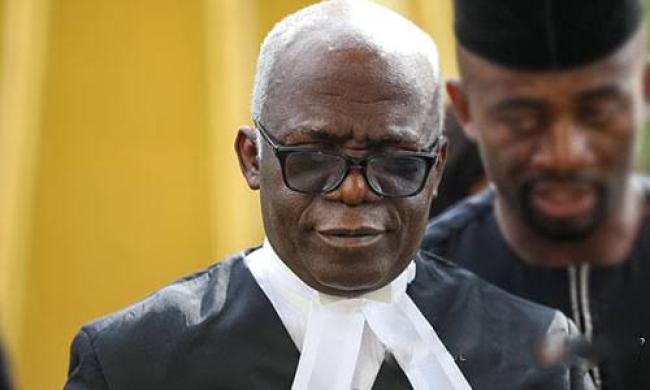
Human rights lawyer, Femi Falana (SAN), has criticized the extended detention of Chizorom Harrison Ofoegbu, widely known as Ijele, over alleged defamation of Evangelist Ebuka Obi, the spiritual director of Zion Movement Outreach Ministry in Lagos State.
Chronicles Reporters reveals that the case against Ijele has been ongoing since April 2024. Initially detained at Ikoyi Prison in Lagos for alleged cybercrime, his release has been stalled despite meeting bail conditions, due to another case filed in Awka, Anambra State.
Reacting to the situation, Falana argued that the Federal High Court lacks jurisdiction over defamation cases. Citing the provisions of Section 251 (1)(S), (3) of the Constitution and Section 7 (1) and (2) of the Federal High Court Act, he explained that defamation through online publications is not recognized under existing laws.
Falana noted that the amended Cybercrimes Act no longer criminalizes publications aimed at causing hatred or damaging reputations. However, he clarified that the court retains jurisdiction over cyberstalking charges involving online threats that cause fear of death, as stipulated under Sections 24 (2)(c)(i)(ii) and (3) of the Act.
Key Charges Against Ijele
Count 1 accuses Ijele of conspiring to use social media to damage the reputation of Evangelist Obi. Falana argued that this charge is baseless since the alleged offense is not recognized by law. He referenced a Court of Appeal ruling in Alao-Akala v. FRN (2021), which established that conspiracy charges cannot stand if the principal offense is non-existent.
Count 2 pertains to cyberstalking, specifically an online publication that allegedly caused the evangelist to fear for his life. Falana acknowledged that this falls under the Cybercrimes Act and is punishable under its provisions.
Count 3 involves allegations of criminal defamation, claiming that Ijele’s publication was intended to ridicule and damage the evangelist’s reputation. Falana maintained that defamation does not fall under the jurisdiction of the Federal High Court. He cited previous judgments, including Omon & Ors v. Ekpa (2019), which affirm that defamation claims, even in civil cases, are outside the court’s purview.
Court’s Incompetence on Defamation Cases
Falana emphasized that the Federal High Court has no jurisdiction over defamation, either criminal or civil, as it is not listed under Section 251 (1) of the Constitution. He reiterated that defamation is better addressed in civil courts or other appropriate legal forums.
In summary, Falana called for a review of the charges against Ijele, urging that only offenses recognized under the law should be pursued.
For updates on this and other stories, join our WhatsApp channel.